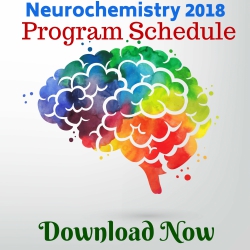
Wafaa Ramadan
King Faisal Specialist Hospital and Research Center, Saudi Arabia
Title: Confirming the recessive inheritance of SCN1B mutations in developmental epileptic encephalopathy
Biography
Biography: Wafaa Ramadan
Abstract
Introduction: Dominant SCN1B mutations are known to cause several epilepsy syndromes in humans. Only two epilepsy patients to date have been reported to have recessive mutations in SCN1B as the likely cause of their phenotype. Here, we confirm the recessive inheritance of two novel SCN1B mutations in five children from three families with developmental epileptic encephalopathy. The negative clinical exome in one of these families highlight the need to consider recessive mutations in the interpretation of variants in typically dominant genes.
Materials & Methods: We conducted autozygosity mapping and a multi-gene panel in five children with epileptic encephalopathy from three unrelated consanguineous families with normal parents.
Mutation Analysis: In family one and three the same splicing variant was identified (NM_001037.4:c.449-2A>G). In family two a missense homozygous SCN1B variant (NM_001037.4:c.355T>G:p.Y119D) was identified with high pathogenicity scores using in silico prediction tools (PolyPhen (0.997), SIFT (0) and CADD (27)). These variants were completely absent in >7,000 Saudis screened for these genes using exome sequencing and gene panel testing. They were also absent in ExAC.
Conclusion: Although dominant mutations are the typical class of mutations in SCN1B in the context of epilepsy, recessive mutations in this gene have also been reported, albeit very rarely (two patients to date). The negative clinical exome in one of these families highlight the need to consider recessive mutations in the interpretation of variants in typically dominant genes.

